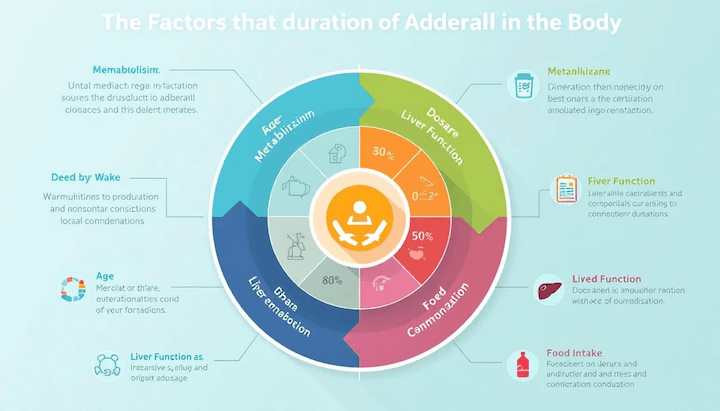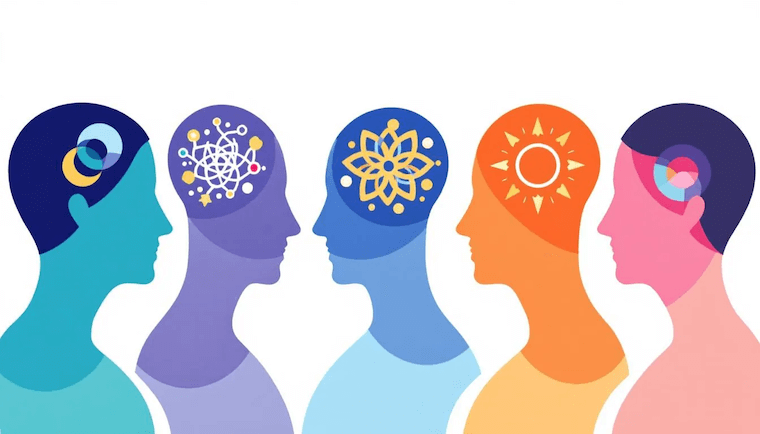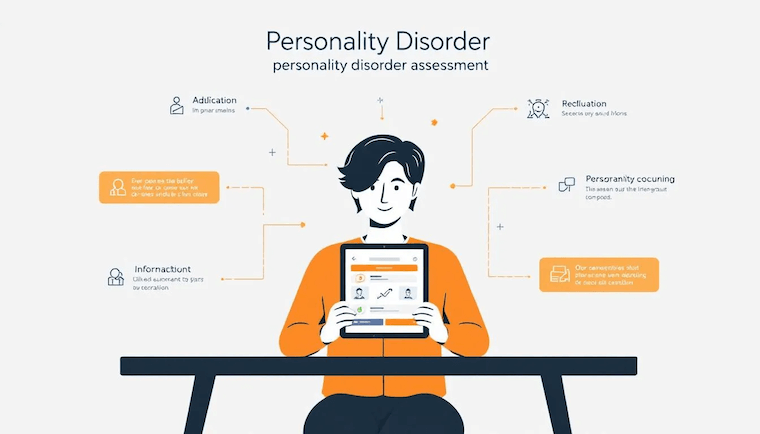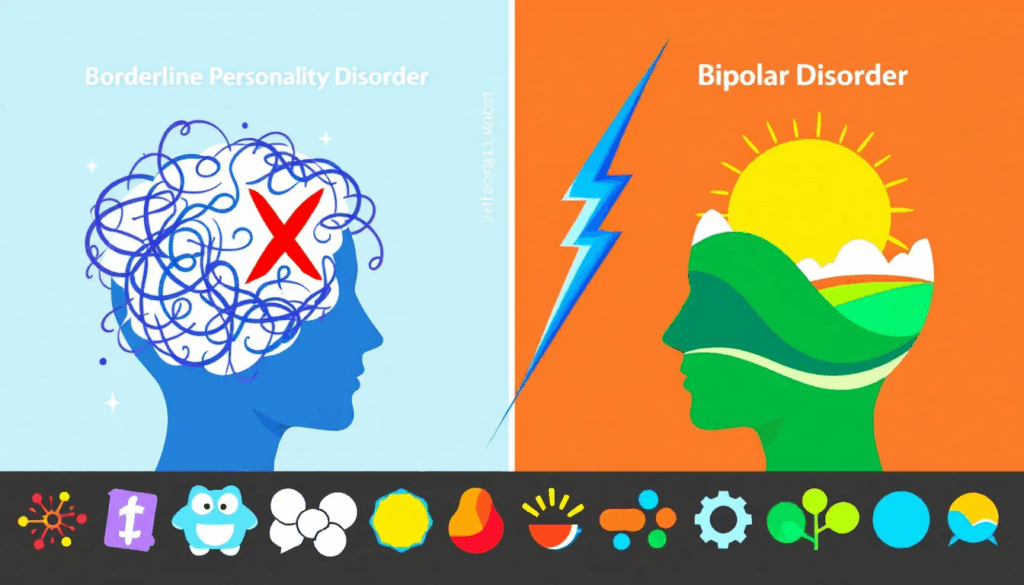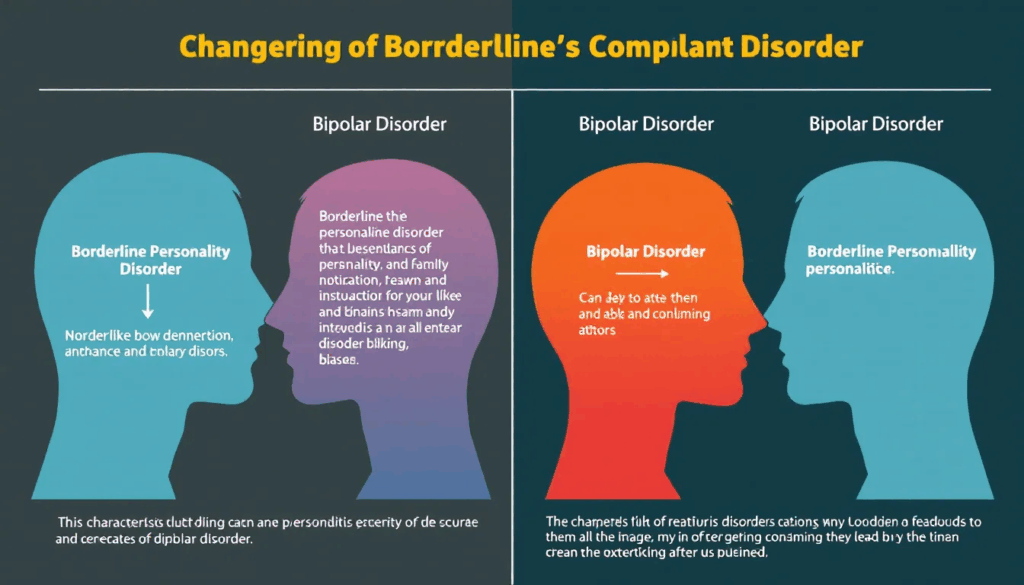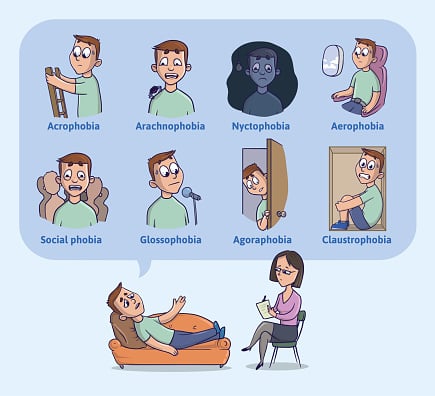Mental health issues encompass a wide range of conditions that can significantly impact an individual’s emotional, psychological, and social well-being. These mental health disorders can manifest in various forms, including anxiety disorders, mood disorders, post-traumatic stress disorder (PTSD), and substance abuse disorders.
Fortunately, there are numerous effective treatment options available to address these mental health challenges. One such treatment is psychotherapy, also called talk therapy, where individuals discuss their mental health conditions and related issues with a professional. This article overviews some of the most commonly utilized and evidence-based approaches for managing mental health concerns.
Understanding Mental Health
What is Mental Health?
Mental health refers to a person’s psychological, emotional, and social well-being. It shapes the way you think, feel, behave, and interact with others. Your mental state affects how you cope with stress, and it is a vital part of your life, from infancy through adulthood. Mental health encompasses your overall well-being and quality of life. Maintaining good mental health is essential for leading a balanced and fulfilling life, as it influences your ability to handle life’s challenges, build relationships, and make decisions.
Mental Health Disorders
Types of Mental Health Disorders
Mental health disorders, or mental illnesses, affect the way you think and behave. They change your mood and can make it difficult to function at home, work, school, or in your community. There are more than 200 types of mental health disorders, including:
Mood disorders (e.g., depression)
Psychotic disorders
Eating disorders
Substance abuse disorders
Each type of mental health disorder has its unique characteristics and treatment options. Accurate diagnosis is crucial for effective treatment and management. Understanding the specific type of mental health disorder you or a loved one is experiencing can help in seeking the appropriate treatment and support.
Causes and Risk Factors
Mental health disorders can be caused by a combination of genetic, environmental, and psychological factors. Some common risk factors include:
Family history of mental health disorders
Traumatic events, such as abuse or neglect
Chronic stress
Substance abuse
Social isolation
Poor coping mechanisms
Understanding the causes and risk factors of mental health disorders can help individuals take steps to prevent or manage their condition. It is essential to seek help from a mental health professional if you are experiencing symptoms of a mental health disorder. Early intervention and support can make a significant difference in managing mental health conditions and improving overall well-being.
Assessing Mental Health Conditions
Recognizing and addressing mental illness is a crucial first step toward receiving appropriate treatment. An initial assessment involves a comprehensive evaluation process conducted by mental health experts. This assessment aims to identify the specific mental illness and determine the most suitable course of action.
Early Intervention
Early intervention plays a vital role in managing mental disorders effectively. By seeking professional help promptly, individuals can increase their chances of achieving positive outcomes. Prompt assessment and treatment can prevent mental disorders from worsening and minimize potential long-term impacts on daily functioning and overall well-being.
The Evaluation Process
The evaluation process typically involves several components. A mental health professional questions individuals to learn about their symptoms, medical history, and personal circumstances: they may also administer standardized assessments or psychological tests to aid in diagnosis. Additionally, physical examinations and laboratory tests may be performed to rule out potential underlying medical conditions contributing to the mental health symptoms. This comprehensive approach ensures an accurate diagnosis and tailored treatment plan.
Working with a Mental Health Professional
Many mental health and healthcare professionals provide treatment and support for individuals with mental health issues. Each mental health professional has different qualifications, specialties, roles, and responsibilities.
Psychiatrists
Psychiatrists are medical doctors who specialize in diagnosing and treating mental health disorders. They can prescribe medications and provide therapy to manage symptoms of conditions such as depression, anxiety disorders, bipolar disorder, and other psychotic disorders. Psychiatrists play a crucial role in developing comprehensive treatment plans that address both the psychological and biological aspects of mental health disorders.
Psychologists
Psychologists have a doctoral degree in psychology and are trained to provide psychotherapy and administer psychological tests. They utilize various therapeutic approaches, such as cognitive-behavioral therapy (CBT), to help individuals develop coping mechanisms, manage symptoms, and improve their overall mental well-being. Psychologists work closely with individuals to address their specific mental health disorder needs and promote positive behavior patterns.
Licensed Clinical Social Workers and Licensed Professional Counselors
Licensed clinical social workers and licensed professional counselors have master’s degrees and can provide counseling and therapy for individuals with mental health disorders. They focus on helping individuals navigate social and emotional challenges, develop coping strategies, and improve their interpersonal relationships. These mental health professionals often work in community mental health settings, providing accessible and affordable mental health services.
Psychiatric Nurse Practitioners
Psychiatric nurse practitioners have specialized training in mental health nursing and can provide medication management and therapy. They work closely with psychiatrists and other mental health professionals to monitor individuals’ progress, assess their mental illness status, and provide support and education to patients and their families. Psychiatric nurse practitioners play a vital role in ensuring continuity of care and promoting adherence to treatment plans.

Treatment Options for Mental Illness
Psychological treatments, commonly referred to as talk therapy or psychotherapy, play a crucial role in addressing mental health disorders. These approaches provide individuals with tools and strategies to manage symptoms, develop coping mechanisms, and promote overall well-being. Some common psychological treatments for mental illness include:
Cognitive-behavioral therapy (CBT)
Cognitive-behavioral therapy is a widely used and evidence-based treatment approach for various mental health disorders, including depression, anxiety issues, and PTSD. CBT focuses on identifying and modifying negative thought patterns and behaviors that contribute to negative mental conditions. Through structured therapy sessions, individuals learn to challenge distorted thinking, develop healthier coping strategies, and improve their emotional regulation skills.
Dialectical Behavior Therapy (DBT)
Dialectical behavior therapy is a specialized form of cognitive-behavioral therapy that was originally developed to treat borderline personality disorder. However, it has since been adapted to address other mental illnesses, such as eating disorders and substance abuse disorders. DBT emphasizes the development of mindfulness skills, emotional regulation techniques, and interpersonal effectiveness. It helps individuals learn to tolerate distress, manage intense emotions, and improve their relationships with others.
Exposure Therapy
Exposure therapy is a type of cognitive-behavioral therapy that is particularly effective for anxiety disorders, such as phobias, panic disorder, and PTSD. This approach involves gradually exposing individuals to feared objects, situations, or memories in a controlled and safe environment. Through repeated exposure and the development of coping strategies, individuals learn to overcome their fears and reduce the intensity of their anxiety symptoms.
Eye Movement Desensitization and Reprocessing (EMDR)
Eye movement desensitization and reprocessing is a psychotherapy approach that is commonly used to treat PTSD and other trauma-related mental illness problems. EMDR involves guiding individuals through a series of eye movements while they recall traumatic memories. This process helps to reprocess and desensitize the emotional impact of the trauma, allowing individuals to develop more adaptive coping mechanisms and reduce the intensity of their symptoms.
Medications for Mental Health Conditions
Medications can play a significant role in managing various mental illnesses. They can help alleviate symptoms and improve overall functioning. However, it is crucial to consult with a healthcare provider to determine the most suitable treatment plan, as medication needs may vary depending on the individual’s specific condition and circumstances.
Antidepressants
Antidepressants are commonly prescribed for conditions such as depression, anxiety disorders, and certain types of obsessive-compulsive disorder (OCD). These medications work by regulating neurotransmitters in the brain, which can help improve mood and reduce symptoms. Examples of antidepressants include selective serotonin reuptake inhibitors (SSRIs) like fluoxetine (Prozac) and sertraline (Zoloft), as well as serotonin-norepinephrine reuptake inhibitors (SNRIs) like venlafaxine (Effexor) and duloxetine (Cymbalta).
Mood Stabilizers
For individuals with bipolar disorder, mood stabilizers such as lithium, valproic acid (Depakote), and lamotrigine (Lamictal) may be prescribed. These medications help regulate mood swings and prevent manic or depressive episodes. Antipsychotic medications, like risperidone (Risperdal), olanzapine (Zyprexa), and quetiapine (Seroquel), are also sometimes used in combination with mood stabilizers to manage symptoms of bipolar disorder.
Antipsychotics
Individuals with schizophrenia or other psychotic disorders may benefit from antipsychotic medications, which can help reduce hallucinations, delusions, and disorganized thinking. Examples of antipsychotic drugs include risperidone (Risperdal), olanzapine (Zyprexa), and aripiprazole (Abilify). These medications work by regulating dopamine and other neurotransmitters in the brain, helping to manage the symptoms associated with psychotic disorders.
Stimulants and Non-Stimulants for ADHD
For individuals with attention deficit hyperactivity disorder (ADHD), stimulant medications like methylphenidate (Ritalin) and amphetamine-based medications (Adderall) can help improve focus, concentration, and impulse control. Non-stimulant options, such as atomoxetine (Strattera) and guanfacine (Intuniv), are also available for those who cannot tolerate or do not respond well to stimulants. These medications help regulate neurotransmitters involved in attention and impulse control.
Mental Health Programs
Mental health services encompass a range of treatment plans designed to support individuals with common mental health conditions. These services aim to provide accessible and comprehensive care, promote recovery, and foster independence.
Outpatient Programs
Outpatient programs offer flexible treatment schedules, allowing individuals to receive therapy, counseling, and medication management while maintaining their daily routines. These programs typically involve regular visits to a mental health clinic or provider’s office for individual or group therapy sessions. Outpatient programs are suitable for individuals with mild to moderate mental health problems who do not require intensive or round-the-clock care.
Intensive Outpatient Programs (IOPs)
Intensive outpatient programs provide a higher level of care than traditional outpatient programs. IOPs typically involve several hours of structured programming per day, several days a week. These programs offer a combination of individual therapy, group therapy, and psychoeducational classes to address mental illness issues and develop coping skills. IOPs are often recommended for individuals who need more support than outpatient care but do not require inpatient hospitalization.
Partial Hospitalization Programs (PHPs)
Partial hospitalization programs, also known as day treatment programs, provide a structured and intensive level of care for individuals with severe mental health conditions. PHPs typically involve several hours of programming per day, five to seven days a week. These programs offer a wide range of services, including individual therapy, group therapy, medication management, and life skills training. PHPs are designed to provide a step down from inpatient care or a step up from outpatient treatment.
Alternative and Complementary Therapies
In addition to traditional psychological treatments and medications, alternative and complementary therapies can be beneficial for managing people with mental health conditions. These approaches focus on promoting overall well-being and addressing the mind-body connection. These can include:
- Mindfulness and meditation
- Yoga
- Exercise
- Art and music therapy
- Acupuncture
- Massage therapy

Lifestyle Changes and Self-Care
In addition to professional treatment plans, making lifestyle changes and practicing self-care can significantly impact mental health and well-being. These strategies can complement other treatments and help individuals manage symptoms, reduce stress, and improve overall quality of life.
Healthy Sleep Habits
Establishing and maintaining healthy sleep habits is crucial for mental health. Adequate sleep helps regulate mood, improves cognitive function, and reduces the risk of developing mental disorders. Aiming for 7-9 hours of sleep per night, creating a consistent sleep schedule, and practicing good sleep hygiene (e.g., avoiding electronic devices before bedtime and creating a relaxing sleep environment) can promote better sleep and support mental well-being.
Balanced Nutrition
Eating a balanced and nutritious diet can have a positive impact on mental health. Certain nutrients, such as omega-3 fatty acids, B vitamins, and magnesium, have been linked to improved mood and cognitive function. Incorporating a variety of fruits, vegetables, whole grains, lean proteins, and healthy fats into the diet can provide the necessary nutrients to support brain health and overall well-being. It is also important to limit the consumption of processed foods, sugary snacks, and excessive caffeine or alcohol.
Stress Management Techniques
Developing effective stress management techniques is essential for maintaining mental health. Chronic stress can exacerbate mental health problems and negatively impact overall well-being. Stress management strategies may include deep breathing exercises, progressive muscle relaxation, journaling, or engaging in hobbies and leisure activities. Finding healthy ways to cope with stress, such as talking to a trusted friend or practicing mindfulness, can help build resilience and improve mental health outcomes.
Social Support and Connection
Maintaining social connections and seeking support from others is vital for mental health. Strong social support networks can provide a sense of belonging, reduce feelings of isolation, and offer a source of encouragement and understanding. Engaging in meaningful relationships, participating in support groups, or joining community organizations can foster a sense of connection and promote mental well-being. It is important to prioritize social interactions and reach out for help when needed.
This can include support groups such as Narcotics Anonymous (NA) and Alcoholics Anonymous (AA) for individuals struggling with both a mental health condition and a co-occurring substance use disorder. These programs provide a like-minded community that can provide support, accountability, and local resources. You can find meetings in your area through the NA website and the AA website.
Get Started with Treatment for Mental Health Disorders
Cedar Hill Behavioral Health provides personalized treatment plans to assist individuals in learning how to cope with any mental health condition they may be struggling with. Our programs encompass a range of evidence-based therapies, including individual counseling, group sessions, and medication-assisted treatment when appropriate. By addressing co-occurring mental health conditions through a dual diagnosis approach, we aim to provide comprehensive care tailored to each individual’s unique needs.
If you or a loved one needs mental health treatment, reach out to Cedar Hill Behavioral Health by calling (508) 310-4580 or submitting an inquiry through our online form. Our team of professionals is dedicated to guiding you on the path to recovery and regaining control over your life.



